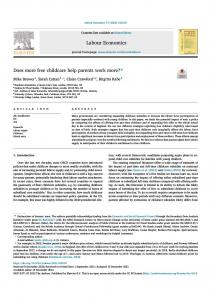Event
30 November 2021 at 13:30
<p>Please see above for details on how to watch this event online.</p>
The next few years are likely to be particularly challenging for schools, colleges, universities and nurseries. At this event, we will examine how education spending can be best set to support levelling up and narrow inequalities.







































